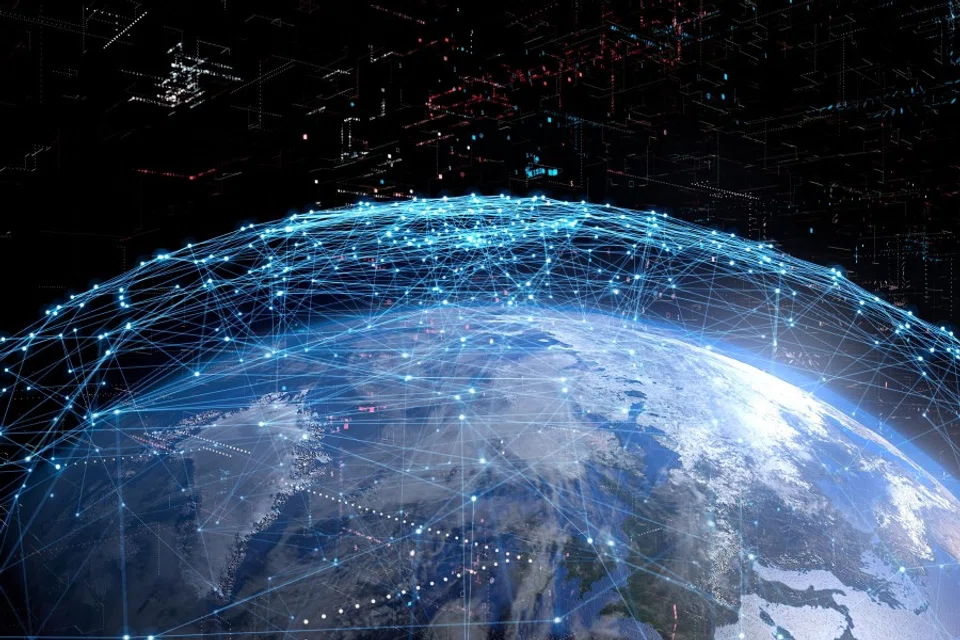China-US Geotech competition: Does China stand a chance?
In a world ruled by immense technological advancement, a new frontier - Geotech or the nexus between geopolitics and technology - is opening up between key players, China and the US. How their tussle plays out will not only shape the future of the ICT landscape, but the balance of power among nations in the digital age.

The confluence of geopolitics and technology (Geotech) is setting the stage for a new arena of competition between the US and China.
The US has become increasingly anxious about China's rising global political and technological influence, even though China has no intention and capabilities to exert its leadership now. The US's anxiety stems in part from its political traditions of creating foreign threats. During the 1950s and 1960s, Secretary of State John F. Dulles and President John F. Kennedy believed in the foreign threat strategy as a necessity for the US's understanding of the world, until President Richard M. Nixon and Secretary of State Henry A. Kissinger partly reversed it. But they remained anxious about changes to the international order brought about by emerging powers. And this anxiety is not just centered on China.
China, on the other hand, used to see the US as a partner who was deserving of respect for its role in ending WWII and helping to uphold global peace even until today. Now, against the backdrop of Geotech competition, China is anxious too, as it fears that its main goals of national unity and rejuvenation may be stymied.
In the Geotech arena, China and the US are not so much enemies as they are rivals. Just as Japan restricted the export of semiconductor materials to South Korea, and the US removed its ally Turkey from the fighter jet programme, the technological decoupling between the US and China occurred when both realised that geopolitical interests are under threat. It was thus not a surprise when the US activated "denial orders" to Huawei and ZTE.

Current state of play
Where it comes to providing core components in servers such as CPU, DRAM and NAND Flash, US Information and communications technology (ICT) companies dominate.
During the pre-Trump period, major US firms in the high-end market and upstream in the supply chain worked with Chinese companies in the downstream. It was a stable arrangement. But today, business decisions could become political and are heavily influenced by the US government. This fusion of corporate and national strategy is a result of US domestic economic recession and global power shifts. One example is the refusal and rejection of US patents for upgraded Chinese tech products, thereby weakening Chinese enterprises' competitiveness.
As it stands, US companies dominate the global server CPU market. In terms of the total number of patents granted, as shown by the Derwent World Patent Index (DWPI) database. Chinese companies lag far behind, Huawei being the lone exception.

US companies are also in the leading spots if only patents granted in the US and Europe are considered. These patents are often seen as higher quality. For example, IBM has nearly 11,000 patents granted in the US, while Huawei (the leading Chinese company) has just under 1,500.
A potential Chinese ICT leader is Unigroup, a company with a long value chain that includes CPU provider Spreadtrum Communications, DRAM provider Guoxin Microelectronics, NAND Flash provider Yangtze Memory Technology, and integrated system provider New H3C.
China's cards in the China-US Geotech race
In the face of ICT sanctions by the US, China can learn from the experiences of Japan, South Korea, and Singapore. Instead of relying on knowledge created in developed countries, these countries build their own biomedical industries by channelling venture capital resources, protecting intellectual property, and providing incentives to attract global talents. They believe that key technologies cannot be borrowed but have to be created for their own specific needs.
The US is trying to hold China hostage in political negotiations, while forcing China to retreat from the core component supply chain as well as the business network.
Furthermore, China has its large and lucrative domestic market as backing. The Chinese market has contributed significantly - 17-40% - to the annual revenue of many of the US companies mentioned above, Amazon being the exception. This would make giving up the Chinese market a costly move for the US.

Chinese ICT companies are also competitive in the areas of communication, cloud computing, and artificial intelligence. The US is trying to hold China hostage in political negotiations, while forcing China to retreat from the core component supply chain as well as the business network. More Chinese companies will be blacklisted, as the global ICT supply chain becomes fragmented and companies shift their operations from China to other countries.
The Chinese have recovered from their initial state of alarm. In response, the government has opened up its domestic market, promoted the Regional Comprehensive Economic Partnership (RCEP), and made plans for possibly joining a higher-level global trade treaty (potentially the Comprehensive Progressive Trans-Pacific Partnership, CPTPP).
Chinese companies have three possible strategies under the current situation: global mergers, developing global talents, and expanding third party markets.
Global mergers
Chinese companies could identify and invest in core intellectual property from non-US start-ups, to partly secure the supply chain.
Before the rise of the last wave of ICT evolution such as cloud computing or 5G, US capital invested in promising SMEs, increasing their shares gradually from 2008 to 2019. Now, the top five capital giants including Vanguard, Blackstone, and State Street Corp. own 25-50% shares in leading providers of server CPUs including Intel, AMD, and ARM, and over 35% shares in leading providers of DRAM and NAND Flash, including Micron, Western Digital, and Toshiba Memory (now known as Kioxia).
Furthermore, the US administration and its allies have acted multilaterally, such as via the Foreign Investment Risk Review Modernisation Act, to create an economic and technological moat against China.
In response, China could encourage venture capitalists or private equities to identify and invest in global SMEs and start-ups that hold key technologies. These will be the potential players in the next wave of ICT revolution such as 6G, robotics or quantum computing.
Global talents
China's efforts in developing human capital can potentially reverse the situation, but it will take time.
According to Shanghai Ranking's Academic Ranking of World Universities in 2019, the US dominates in disciplines that are critical to future ICT revolution, such as mathematics, physics, chemistry, electronics and materials, while Chinese universities are leaders in telecommunication engineering. This means that China is nurturing better engineers in communication technology, whereas the US potentially has far more developers in design and manufacturing of chips and software.



Strict controls by the US on Chinese student visas will hinder China's progress in catching up. To attract international talent, Chinese companies and research institutes can set up collaborations with leading institutes outside the US, such as in the UK, Singapore, or Switzerland.
Third party markets
Co-development of third-party markets can help China build trust with economic partners.
Regional integration can be strengthened through traditional and digital infrastructure. However, no country is willing to bear the economic cost and organise a working team on its own. In this case, China has competitive hardware (including traditional and digital infrastructure) while the US has the software (including financial and law products), which means there is potential for collaboration between the two to bid for third-party projects. These include smart city projects in Southeast Asia and the Balkan corridor. This role could also be played by other Western countries if the US is reluctant to participate. In the era of Geotech competition, a multilateral collaboration could decrease the risk of a protracted conflict.
Conclusion
It is still too early to predict the winner in the current Geotech competition. Both the US and China possess great strengths and weaknesses. Chinese ICT companies are dominant in fibre optics and wireless communication while the US is strong in satellite technology. But the landscape is constantly changing with the development of 6G (2025-2030).
Countries can gain the upper hand depending on their adaptive capacity to meet the challenge of the next ICT revolution against the backdrop of geopolitical developments.
Other players such as Russia, Japan, India, Singapore, Israel, South Korea and the EU are all eager to take part in the race. Geopolitics is not about right or wrong, but how it meets national interests. Countries can gain the upper hand depending on their adaptive capacity to meet the challenge of the next ICT revolution against the backdrop of geopolitical developments.
For declining or medium and small economies, their key concerns will be how dedicated superpowers are to maintaining multilateral systems to their benefit, and on collaborating to tackle global challenges which they cannot solve alone, such as digital governance, climate change, poverty alleviation, or terrorism, rather than to choose sides between China and the US.



![[Photos] Fact versus fiction: The portrayal of WWII anti-Japanese martyrs in Taiwan](https://cassette.sphdigital.com.sg/image/thinkchina/3494f8bd481870f7c65b881fd21a3fd733f573f23232376e39c532a2c7593cbc)

